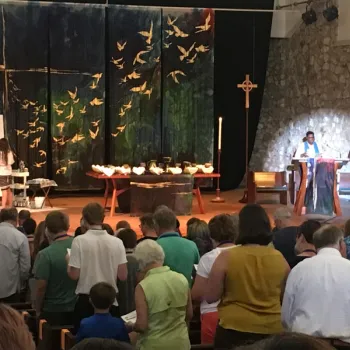Quote
By this everyone will know that you are my disciples, if you have love for one another.
Find a Congregation
OR
Filter by Presbytery
Who We Are
Upcoming Events (3 per page)
Youth & Young Adult
Text
Young people offer unique gifts, perspectives, passions, and concerns that help build the church into the full expression of God’s love for the world, locally and nationally.
LGBTQIA+
Text
The Presbyterian Church (U.S.A.) celebrates the gifts of all gender identities and sexual orientations in the life of the church and affirms the full dignity and humanity of all people.
BIPOC
Text
The Presbyterian Church (U.S.A.) supports the unique experiences and needs of racial and multiethnic individuals and groups, including Black, Indigenous, and People of Color communities.
















